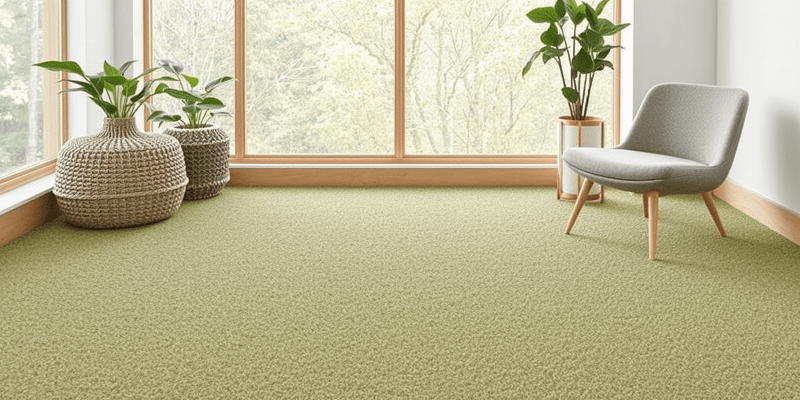Why Eco-Friendly Carpets Are the Future of Sustainable Living
In recent years, the concept of sustainable living has gained significant traction as more people become aware of the environmental impact of their daily choices. One area that is often overlooked but has a substantial impact on the environment is carpet production. Traditional carpet manufacturing processes are resource-intensive and can contribute to pollution and waste. However, the emergence of eco-friendly carpets made from recycled materials is changing the game, offering a more sustainable and environmentally friendly alternative.
The Environmental Impact of Traditional Carpet Production
Traditional carpet production involves several stages, each with its own set of environmental challenges. The primary raw material used in most carpets is synthetic fibers, such as nylon and polyester, which are derived from non-renewable resources like oil. The extraction and processing of these materials require significant amounts of energy and water, contributing to greenhouse gas emissions and water scarcity.
Additionally, the manufacturing process itself involves the use of chemicals, dyes, and adhesives, many of which can be harmful to both the environment and human health. These chemicals can leach into the soil and water systems, causing long-term damage. Furthermore, the disposal of old carpets is a major issue. Most carpets end up in landfills, where they can take hundreds of years to decompose, releasing toxic substances into the environment.
Innovative Techniques in Eco-Friendly Carpet Production
Eco-friendly carpets made from recycled materials are designed to address these environmental concerns. These carpets are typically made from post-consumer or post-industrial waste, such as plastic bottles, fishing nets, and discarded carpets. By using recycled materials, manufacturers reduce the demand for new raw materials, thereby conserving natural resources and reducing the carbon footprint associated with extraction and processing.
One of the key innovations in eco-friendly carpet production is the development of advanced recycling technologies. For example, some companies use a process called depolymerization, which breaks down plastic waste into its basic components, allowing it to be reformed into high-quality fibers. This process not only reduces waste but also ensures that the resulting fibers are durable and suitable for carpet production.
Another important aspect of eco-friendly carpet production is the use of non-toxic and biodegradable materials. Many manufacturers are now opting for natural dyes and adhesives that are free from harmful chemicals. This not only makes the carpets safer for consumers but also minimizes the environmental impact during the manufacturing and disposal phases.
Long-Term Advantages for Homeowners and the Planet
Choosing eco-friendly carpets made from recycled materials offers numerous benefits for both homeowners and the planet. For homeowners, these carpets provide a sustainable and stylish option that aligns with their values of environmental responsibility. They are available in a wide range of colors, patterns, and textures, making them a versatile choice for any interior design.
Moreover, eco-friendly carpets are often more durable and easier to maintain than their traditional counterparts. The use of high-quality recycled fibers ensures that these carpets can withstand heavy foot traffic and resist wear and tear, extending their lifespan. This longevity translates to cost savings for homeowners, as they won’t need to replace their carpets as frequently.
From an environmental perspective, the adoption of eco-friendly carpets helps to reduce the overall carbon footprint of the home. By choosing products made from recycled materials, consumers are supporting a circular economy, where waste is minimized, and resources are conserved. Additionally, the reduced use of harmful chemicals and the lower energy consumption during production contribute to a cleaner and healthier environment.
Conclusion
The shift towards eco-friendly carpets made from recycled materials represents a significant step forward in the journey towards sustainable living. By addressing the environmental challenges associated with traditional carpet production, these innovative products offer a more responsible and eco-conscious choice for homeowners. As awareness of the importance of sustainability continues to grow, it is likely that eco-friendly carpets will become the norm rather than the exception, paving the way for a greener and more sustainable future for all.
